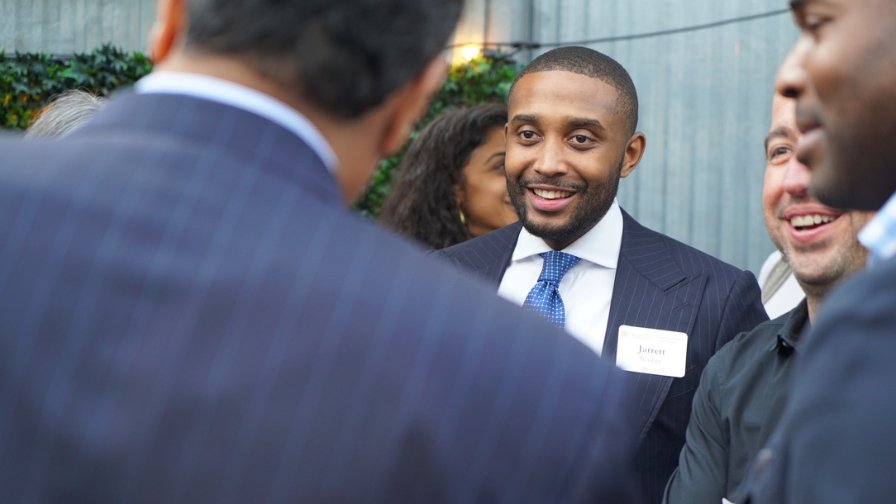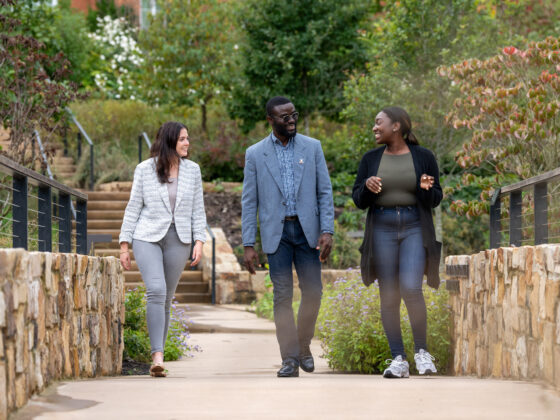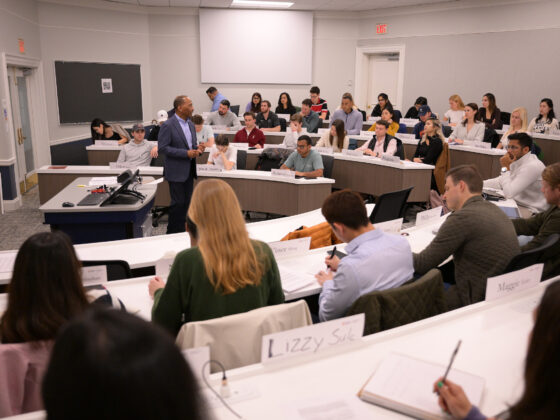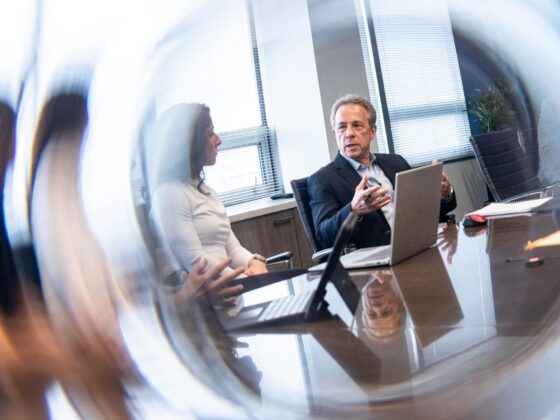For Jarrett Walker (MBA ’18), what started as a passion for advancing progress around diversity and inclusion at the Darden School has expanded to his new Darden community in New York City, where he is an investment banking associate with Barclays and works in the finance industry alongside hundreds of Darden alumni. That’s why he made the effort recently to personally organize a networking event in the city that served as a kickoff to a new initiative for alumni to support diversity and inclusion at the School, within the Darden network and in their community.
At Darden — where the School’s Office of Global Diversity, Equity and Inclusion and Dean’s Diversity Advisory Council partnered with Walker and the Office of Engagement to organize the event — fostering a diverse MBA community and empowering that community toward greater equity and inclusion are key priorities.
Below, Walker shares his goals for the kickoff event, the future, and the role Darden and its future students and alumni can play.
You recently organized a kickoff networking event in New York City for Darden alumni as part of a broader initiative to support diversity and inclusion. What’s your vision for this initiative?
When we approached Darden and the Dean’s Diversity Advisory Council with the idea of an event, we wanted to achieve two main goals. The first goal was to organize an event that was social at the core and would primarily serve as a means to reconnect alums in an organic, safe environment. The second thing we wanted to achieve was to hear from alums on what they would like to see done to better support them post-Darden. I think we successfully achieved both goals, and we are very excited to see what is in store for the fall.
Tell us about the kickoff event. What stood out? What were some of the more interesting topics of discussion?
I was genuinely surprised by the overwhelming positive response we received from attendees and even those who were not able to attend. It was very clear that there was demand for an event geared toward our diverse alums. What stood out was the amount of people that voiced a desire to participate on the planning committee for future events and become more involved in initiatives around diversity at Darden. I could tell that alums are truly motivated to support Darden and are looking for ways to use their talents and passions in support of Darden.
What value can the Darden alumni network — your local network in New York or alumni in any city around the world — provide to make progress on issues of diversity, equity and social justice?
In order to make meaningful progress toward diversity and equity, it is imperative that Darden provide platforms and spaces for alums to candidly discuss the value of diversity. Leveraging the Darden alumni network to host events where honest dialogue can be had will ultimately charter a path to real action. Unfortunately, these topics are oftentimes viewed as too difficult to discuss. However, I am hopeful that Darden will continue to try and create spaces for honest dialogue that create a better sense of understanding.
Now that you’ve been back in “the real world” for a year since graduating, how have you applied what you learned at Darden to create progress on these issues in your workplace and community?
Often times the best way to create change is to simply be your authentic self. Each of us are different in our own unique way and encouraging that “uniqueness” not only makes the people around you more comfortable, but it also makes the entire organization better. Similar to my experience at Darden, I continually strive to be myself and encourage others to do the same. In a case method environment, you not only have to articulate your thoughts but you also have to be prepared to understand and accept the viewpoints of others. I think this ultimately goes back to fostering an environment where uniqueness among individuals is praised and not scrutinized.
How do affinity clubs at Darden such as the Black Business Student Association, Darden South Asia Society or Pride at Darden help students of diverse backgrounds thrive at the School?
They create a support system and a community within the broader community. Truthfully, the biggest obstacle in being a minority is sometimes the innate cultural differences. Knowing that there are clubs with individuals that share the same culture gives you a feeling of “home.”
How do you, and your fellow alumni, hope to support and engage with those student-run clubs that once benefited you at Darden?
The biggest way to support is with time. Taking phone calls from incoming students interested in your career field, returning to campus to speak at club events and serving as a resource to your former clubs are the best ways to support student-run clubs at Darden. Monetary donations certainly makes things easier from a budget perspective, but the donation of time and resources strengthen the entire Darden community.
What advice would you provide an incoming First Year to help them capture the value of the diverse perspectives and backgrounds their classmates bring to the School?
Step outside of your comfort zone! Use the clubs as a support system and as a resource but do not be afraid to join clubs and social circles that are outside of your traditional “box.” I encourage students to make an effort and learn about their classmates. Ask them about their culture, their family, the cultural/social/racial struggles that they may have experienced. Find safety in the things that you share in common, but find beauty in the things that make you different.
In addition to the variety of diversity-focused club options available to current students, Darden’s Office of Engagement, Dean’s Diversity Advisory Council and Office of Global Diversity, Equity and Inclusion coordinate similar alumni events around the world, in addition to supporting the growing Women@Darden alumnae initiatives.





